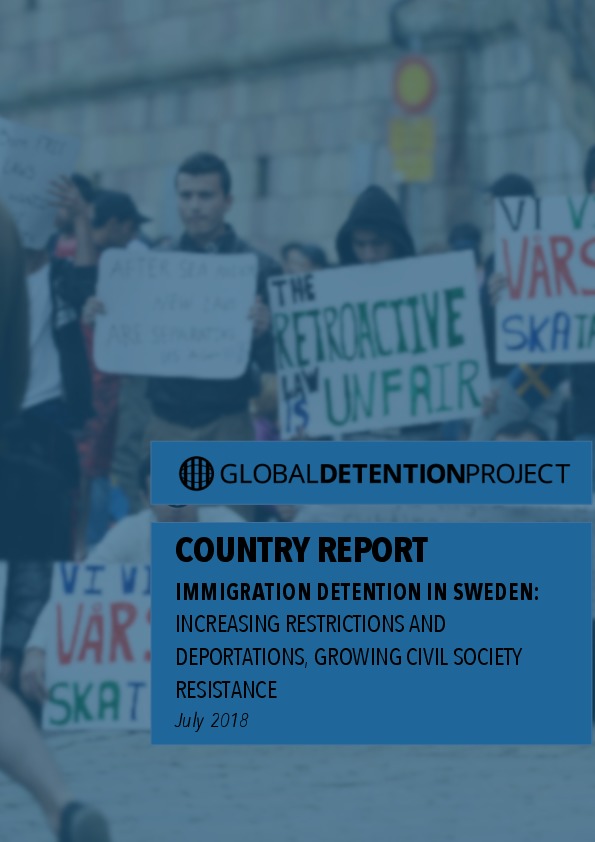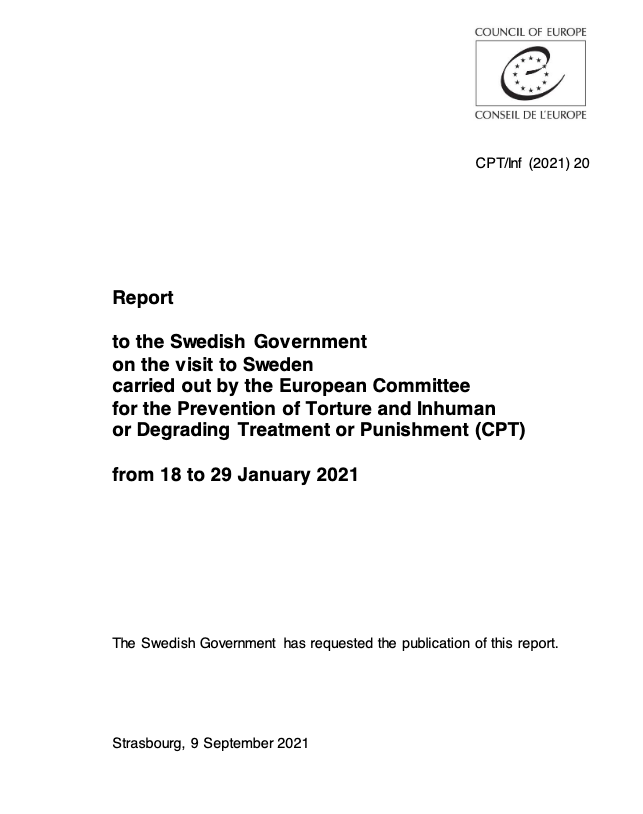B. Establishments for foreign nationals deprived of their liberty under aliens legislation; (Read full CPT report) 18. There had been no major changes to the legal framework for immigration detention since the 2015 visit. 23 As previously, the maximum period of detention of an adult foreign national deprived of his/her liberty under aliens legislation was […]
Sweden
Immigration Detention in the European Union
This book offers a unique comparative assessment of the evolution of immigration detention systems in European Union member states since the onset of the “refugee crisis.” By applying an analytical framework premised on international human rights law in assessing domestic detention regimes, the book reveals the extent to which EU legislation has led to the adoption of laws and practices that may disregard fundamental rights and standards. […]

Sweden Immigration Detention Data Profile (2020)
Sweden Detention Data (2020) The latest detention-related data from Sweden, including immigration and detention-related statistics, domestic laws and policies, international law, and institutional indicators. View the Sweden Detention Data Profile Related Reading: Sweden: Country Page Special Report: Harm Reduction in Immigration Detention Report: Immigration Detention in Sweden – Increasing Restrictions and Deportations, Growing Civil Society […]

Sweden: Covid-19 and Detention
Responding to the Global Detention Project’s Covid-19 survey, the Swedish Migration Board (Migrationsverket), which also acts as the country’s European Migration Network contact, reported that no moratorium on new immigration detention orders had been established in response to the Covid-19 crisis and that such a measure was not being considered. In addition, the Migration Board […]

Sweden: Covid-19 and Detention
Responding to the Global Detention Project’s Covid-19 survey, the Swedish Parliamentary Ombudsman’s office reported that Sweden had not established a moratorium on new immigration detention orders and that no such measure was under consideration. The Ombudsman’s office indicated that the Swedish police released immigration detainees in cases where expulsion could not be executed in the […]

Sweden: Covid-19 and Detention
Responding to the Global Detention Project’s Covid-19 survey, the Swedish Parliamentary Ombudsman’s office reported that as far as they were aware, Sweden had not established a moratorium on new detention orders and was not contemplating such a measure. The Ombudsman stated that while some 200 detainees had been released from immigration detention, they were unable […]

Sweden: Covid-19 and Detention
Sweden’s response to Covid-19 has been different to the approach taken by many neighbouring European countries. It has not imposed quarantine on its population, but rather called on its citizens to “take responsibility” and follow the recommendations of health authorities. To date, Sweden has recorded more than 21,000 cases of Covid-19 and 2,586 deaths related […]

Global Working Group of National Societies Working in Immigration Detention
On 20 March, the GDP was invited to make a presentation about our report “Harm Reduction in Immigration Detention” at the annual meeting of the Global Working Group of National Societies Working in Immigration Detention, a gathering of National Societies of the International Red Cross and Red Crescent Movement co-hosted by the International Committee of the Red Cross. […]

Harm Reduction in Immigration Detention
This Global Detention Project Special Report systematically compares conditions and operations at detention centres in several European countries to identify practices that may be used to develop “harm reducing” strategies in detention. […]

Immigration Detention in Sweden: Increasing Restrictions and Deportations, Growing Civil Society Resistance
Sweden used to be lauded for its comparatively humane treatment of asylum seekers and undocumented migrants. However, since the onset of the “refugee crisis,” the country has introduced a series of restrictive immigration control measures and the domestic political environment has become increasingly hostile. Even as the numbers of refugee applicants have steadily fallen, the […]




